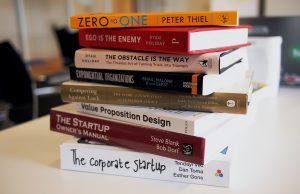Deepika Padukone’s 8-Hour Shift Demand: A Luxury in TV’s 12-Hour Ecosystem

By Anil Merani: Deepika Padukone’s reported insistence on an eight-hour shooting schedule, notably linked to her withdrawal from Sandeep Reddy Vanga’s film Spirit, has sparked a dialogue about work-life balance in India’s entertainment industry. Her demand, which contrasts sharply with the television sector’s norm of mandatory twelve-hour shifts, represents a unique and bold move. These long shifts are often exacerbated by shoots in remote locations, increasing working hours due to travel and logistical demands. Below, I examine how Deepika’s stance might be perceived within the TV ecosystem and its broader implications, drawing on industry context and available insights.
Deepika’s push for an eight-hour workday—which effectively allows for roughly six hours of actual shooting after accounting for breaks and setup—reflects her prioritization of personal well-being, especially as a new mother to her daughter, Dua. Reports suggest that her exit from Spirit stemmed from multiple factors, including creative differences, a steep fee of ₹20-30 crore, and her reluctance to perform Telugu dialogues. However, her demand for shorter hours was a significant point of contention. Industry figures like Ajay Devgn have supported her, noting at the Maa trailer launch that accommodating an eight-hour schedule, particularly for new mothers, aligns with evolving industry practices, as many filmmakers are already adopting eight- to nine-hour workdays. Deepika’s upfront communication of these terms before signing contracts has been praised as a professional move, as it sets clear boundaries instead of disrupting production mid-process.
In contrast, the Indian television industry operates on a far more demanding schedule. Twelve-hour shifts are standard, driven by the need to produce daily or weekly episodes under tight budgets and deadlines. Unlike films, which benefit from extended production timelines and larger budgets, TV shows require rapid output, often filming multiple scenes in a single day. Actors and crew frequently endure 12- to 14-hour workdays, particularly for daily soaps, where the pressure to deliver 20- to 30-minute episodes is relentless. Shoots in remote or “far-flung” locations—common for period dramas or outdoor sequences—further extend hours due to travel, setup delays, or environmental challenges. For example, a shoot in a rural area may require hours of commuting or waiting for optimal lighting, making adherence to shorter schedules nearly impossible without significant cost increases.
In this context, Deepika’s demand for an eight-hour shift would likely be seen as a “super luxury” in the TV ecosystem. The industry’s reliance on long hours is deeply ingrained and viewed as necessary to meet tight schedules and control costs. An eight-hour cap could disrupt production, requiring additional shooting days or larger crews, which TV budgets rarely accommodate. Moreover, the cultural expectation in TV equates long hours with dedication, making such a demand seem indulgent, particularly for less-established actors or crew members who lack the clout of a star like Deepika. A netizen on X (formerly Twitter) pointed out that inefficient planning often inflates shooting hours, suggesting that Deepika’s stance exposes systemic flaws in production management. However, implementing such changes in TV, where margins are slim, is far more challenging than in high-budget films, highlighting the complexity of the issue.
Public and industry reactions to Deepika’s demand are polarized. Supporters, including trade analysts like Aavishkar, argue that her 19-year career, free of claims of unprofessionalism, validates her stance, framing it as a reasonable accommodation for motherhood. On X, some netizens have called criticism of her demands misogynistic, emphasizing her right to prioritize her child. Conversely, detractors, including voices on Reddit, have labelled her demands unrealistic, citing examples of actresses like Kareena Kapoor who manage long hours post-delivery. Sandeep Reddy Vanga’s cryptic post on X, interpreted as a jab at Deepika, fueled perceptions that her conditions were disruptive in high-stakes projects.
Deepika’s advocacy, amplified by her criticism of excessive work cultures (such as her response to L&T Chairman SN Subrahmanyan’s remarks about 90-hour workweeks), aligns with her mental health initiatives through The Live Love Laugh Foundation. In a Marie Claire interview, she spoke candidly about balancing motherhood and her career, highlighting the guilt she feels when away from her daughter. Her stance reflects global trends toward healthier work environments but clashes with the entrenched norms of the TV industry. While her status as a leading actress allows her to push for such changes, it underscores inequities: TV actors and crew members, unlike A-listers, rarely have the leverage to negotiate shorter hours.
Ultimately, Deepika’s demand for an eight-hour shift highlights the tension between traditional industry practices and modern workplace expectations. In television, where twelve-hour shifts and remote shoots are standard, her request would be seen as a luxury and impractical without structural reforms. Nonetheless, her advocacy challenges the industry to reconsider its reliance on gruelling schedules.
The post Deepika Padukone’s 8-Hour Shift Demand: A Luxury in TV’s 12-Hour Ecosystem appeared first on Tellyexpress.














Post Comment